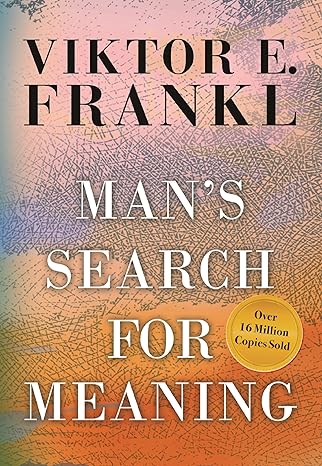
Viktor E. Frankl was an Austrian psychiatrist and Neurologist who became a concentration camp inmate during World War II. He was born in Austria, earned his M.D. in 1930, and had established himself as an experienced physician when he was sent to his first of four concentration camps as an inmate. Like most holocaust survivors, he was stripped of everything upon being taken by the Nazis. He was stripped of possessions, of family, and of title.
His training as a psychiatrist gave him a very unique look into every aspect of what it means to be human. He saw the extremes of human endurance, of compassion, and of course, cruelty. He saw how he, and those around him dealt with the incredible stress of knowing that each moment may be your last. He saw similarities in the actions and thoughts of those who succumbed to their situation and he saw similarities in those who survived it.
He concluded that humans are capable of enduring almost anything if they feel that they are enduring it for a purpose. Frankl used the idea that he needed to be there for his wife when this hell-on-earth ended. He endured years of hard labor, while consuming just scraps of bread and watered-down soup. He toiled outside in the winter months with tattered, inadequate clothing. All the while knowing that a pause in his work or a glance in the wrong direction, at the wrong time, may draw a beating, or worse yet, a bullet.
Frankl occasionally saw unexpected kindness from a Nazi guard. He sometimes saw extreme cruelty from a capo. A capo was a fellow prisoner that was favored for some reason by the guards and put in charge of a work detail or barrack. A capo typically received extra rations and privileges. Apparently, a small amount of power was capable of quite a bit of moral corruption.
The life of a concentration camp inmate was the most stressful situation a human being could endure. This unlikely setting served as a sort of psychological observation laboratory for Frankl where he first began to develop a theory of motivation for human existence. Contrary to fellow Austrian Sigmund Freud’s theory that humans are guided by pleasure, Frankl determined that they are guided by finding a purpose or meaning to their lives.
In the end, the image that kept Frankl alive, that of his wife, was found to be just a memory. His wife Tilly succumbed to illness in Bergen-Belsen well before his liberation. Not knowing this likely greatly assisted in his survival. He was able to toil on in the hopes of one day being there for her.
The psychiatric field of Logotherapy is largely attributed to Frankl and has shown great success in helping patients with OCD, schizophrenia, and terminal illnesses. Its underlying philosophy is to help a patient find a meaning or purpose to his or her life. This purpose can often differ greatly from individual to individual, but upon finding, and pursuing it, one’s well-being is greatly enhanced.

